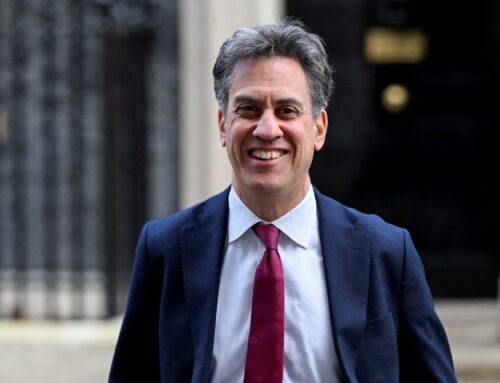Keir Starmer urged to resist pressure to permit Rosebank North Sea oilfield
February 9, 2025
Keir Starmer will do huge damage to the global fight against climate change if he gives in to political pressure and allows the development of a giant new oilfield in the North Sea, according to an analysis by the country’s leading environmental institute.
Chaired by Nicholas Stern, the Grantham Institute on Climate Change will fire a warning shot to ministers not to give the green light to the Rosebank and Jackdaw fields, after suggestions that the Treasury is now in favour of allowing drilling to maximise economic growth.
Lord Stern authored the pioneering 2006 review on climate change that helped to create national and international momentum for a global deal on combating climate change and is regarded as one of the leading experts in the field.
He is also former permanent secretary to the Treasury.
The issue of more drilling for oil in the North Sea has shot to the top of the political agenda with the Conservative party leader, Kemi Badenoch, herself under pressure from the populist anti-green Reform UK, pressing Starmer last week to give the go-ahead for the Rosebank field.
A paper by the institute to be published on Monday will argue that if the government does agree “it will signal to all other fossil fuel producers, including the United States and Russia, that it supports a ‘business as usual’ approach the oil and gas industry”.

The institute will argue that with President Donald Trump having decided to withdraw the US from the Paris agreement on climate change “we are at a critical point in international efforts to have a reasonable chance” of avoiding disastrous effects of global warming.
“To demonstrate international leadership on climate change the UK government needs to take responsibility not just for its territorial emissions but also for how its actions might affect actions by others,” the report says.
It adds that if the UK government backs “dirty energy” sources it would harm efforts to attract investment into the clean energy sources it says are a key path to economic growth.
Bob Ward, policy director at the institute, said: “If the government tries to back both the dirty and clean energy industries at the same time, investment will be held back and the government will fail in its mission to boost economic growth.”
The energy secretary, Ed Miliband, has described the licence issued to Rosebank as “climate vandalism” – and is understood to remain opposed to giving the go-ahead to its development.
But with the chancellor, Rachel Reeves, and the prime minister desperate to kickstart growth, concern is growing among green groups that Downing Street and the Treasury are backtracking on green commitments. This was reinforced when Reeves recently announced plans for a third runway at Heathrow airport.
Numerous Labour MPs have already made clear that they would not tolerate a go-ahead for the Rosebank field and would see it as a betrayal.
Reeves is understood to be keen for development to go ahead if it does not directly undermine the UK’s climate targets. Labour’s manifesto promised not to issue new exploration licences, but not to cancel those already issued.
Miliband’s department is due to publish new guidelines in late spring which could scupper any attempt by the oil companies to successfully resubmit their applications.
Fergus Green, associate professor at the Department of Political Science and School of Public Policy, University College London, said that while the government might wantto approve Rosebank, the administrative and legal processes still had a long way to run.
He added that the backers of any individual fossil fuel project “can always make a claim that its individual project is just a drop in the bucket. The problem is that this ignores all the other drops, which together are causing the bucket to overflow.
“According to credible estimates, the emissions from burning fossil fuels produced in operating and under-construction oil and gas fields and coalmines around the world far exceed the remaining global ‘carbon budget’ for restraining global warming to within 1.5C above pre-industrial levels. New fossil fuel projects like Rosebank will worsen this excess. Accordingly, the only reasonable conclusion is that the oil produced by the Rosebank field will have a highly significant effect on the global climate.”
He added: “Allowing large new UK oil and gas fields like Rosebank to proceed – even publicly stating an intention to do so – would send a signal to the world that the government is not sincere about keeping the 1.5C goal ‘alive’, after all. That signal would undermine the government’s ability to play a leadership role in achieving the 1.5C goal.”
Tessa Khan, executive director of climate action organisation Uplift said: “The science is clear – the world has more oil and gas in existing fields than we can safely burn. Adding new fields will shoot us past liveable climate limits. We know this by looking at the devastation and huge costs that communities here and around the world are experiencing right now because of extreme weather, whether that’s devastating cyclones or the many thousands of households hit with the costs of cleaning up after last month’s Storm Éowyn.
“Quite aside from its climate impact, Rosebank is an awful deal for the UK. The vast majority of Rosebank’s oil will be sold on the international market for export, doing nothing to lower energy bills or increase UK energy security, and yet the UK public will pick up most of the costs of developing the field thanks to generous tax breaks.”
Search
RECENT PRESS RELEASES
Related Post



